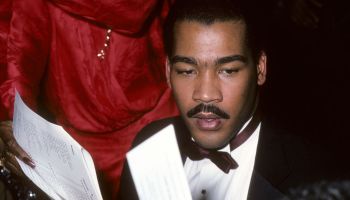When I first read the title of Philly Magazine’s controversial piece I can admit I was a little caught off guard that a story this provocative would see the light of day. It does touch on a lot of nerves without the reader even having to open the cover. But after letting the subject choice marinate a little, I started to feel open-mind with the direction the author wanted to take by tackling an ‘elephant in the room’ type of conversation. Yet, it was the anecdotes and thought processes which followed that disturbed me. I mean after all, I can say that as a Temple student, I can understand the frustration of not hearing enough voices from different races express themselves on the topic of racism more specifically from white people in what most would expect to be a diverse community. So I can understand what the Robert Huber wanted to achieve with this piece aside from getting major attention. It was the lack of knowledge of content and history or variety of responses that turned me off.
As a Temple student, I can applaud Huber for not only tackling a touchy subject but for choosing this particular perspective. I say this because it’s very frustrating to attend racially focused classes where the classroom is predominantly white but with little participation. For example, I took a course called Historical Significance of Race in America with a friend of mine my sophomore year at Temple. Naturally, I was both excited and a little anxious to discuss and debate some of our country’s darkest moments in history. We discussed all the events that have brought us to our thoughts of race today from: slavery, black caricatures, stereotypes, the Trail of Tears, Japanese-American concentration camps and so on. Concepts, definitions, and dates were fairly simple to understand. Yet, the main struggle I found in this class tackling the topic of racial tensions exclusively between whites and blacks. In every discussion it felt like either no one wanted to say what was truly on their mind without sounding too racist. That issue aside, when people did participate it was almost always white vs. black in every topic. Showing that we clearly could only hear our own points and not fully rotate to other thought processes. This obviously wasn’t the first time I noticed this separation of views but I wondered how this is possible in college. I mean at this age were supposed to be out experiencing as many different cultures as possible and taking down the stereotypes that kept us in our sheltered environments for so long. So I must say as initially irritating as the title was, seconds later I was interested in what the author did with this piece.
ALSO CHECK OUT: Why Black People Don’t Tip: Just Another Stereotype Or Ugly Truth?
To start, I think Huber went into the story with his own intentions and direction for how he wanted it to be presented. It was as if he already knew what he wanted his research to prove and he simply went to people with either very simple class structure or shared experiences to confirm what he wanted to publish. The sample size was middle to upper class white people who lived in Fairmount Park, which obviously is not the most diverse of areas when looking for a wide scope of ethnicities or backgrounds. Putting that factor aside, there also doesn’t seem to be any opinion’s from African-American’s (or any other race) on why they feel there is such discomfort or separation amongst races in Philadelphia. I just couldn’t help but feel amused reading Huber’s conflicting views. One minute he wants to explain and defend why he feels uncomfortable walking certain corners at particular times, but then to switch and try to empathize with the black community and the struggles attached. He then would use an experience from a slightly racist or xenophobic person to confirm his weariness of being around blacks in certain parts of the city. I don’t think using the observations of a 50-year-old man who still refers to a black child as “a nigger boy” helped his credibility much either. Honestly, I can say I’ve felt a discomfort walking certain dark corners by myself realizing my vulnerability to a predator at any turning point. But, I feel that same anxiety when I walk the dark deserted alleys near when coming walking to my house in the suburbs of Secane forty minutes away from Temple as well. This area may not be known for its crime-ridden background of ‘gang-bangers’, drug dealers, or robbers. Yet, it still has the natural setting of a dark, secluded and unprotected area ideal for predators and unwise for anyone choosing to walk it alone. I would feel unease walking in North Philly whether it was primarily impoverished area with black, white, Asian, or Spanish people and so on.
I also felt the same unease that Huber felt going to, Cardinal O’Hara, a primarily white high school when I attended. I may not have worried as much about having my car broken into, or being held at gunpoint, but I felt the same discomfort Huber discusses being one of two or three students of color in a classroom of thirty and plus. I learned quickly that I could not smile or flirt my way out of detentions or demerits the way the other girls could who didn’t look like me. I dealt with the discomfort of receiving a back-handed compliment from a teacher of how I was somehow different from the majority of my classmates. I also had to stomach the uneasy glares at my tennis matches where 90% of the people attending were white and upper-middle class. I could see and feel the same assumptions that Huber wants to feel entitled to. The assumption that my presence is merely reduced to crime, poverty, promiscuity, drugs, or simply being ‘ghetto’ and unintelligent.
I can go on and on (literally) all day about how one-sided and, at times, racist this piece comes off. I got the sense that this story simply aimed to defend the biased views of the average young, sheltered, white person whose suburban background is unprepared to live in an urban setting which naturally like any other major city is going to be filled with areas of high crime and poverty. Maybe if Huber had used a wider range of experiences to deliver his point, he could have came up with some better discoveries. Maybe next time he can look into Being black in an all-white corporation, or Being the only female in a major corporation. Maybe he could study how it feels to be a minority in a world where typically the middle-aged, heterosexual, anglo-saxon, male succeeds first.
Words by: Saudia Durrant
Help RNBPHILLY Get To 50,000 Likes!












